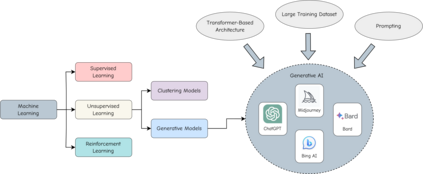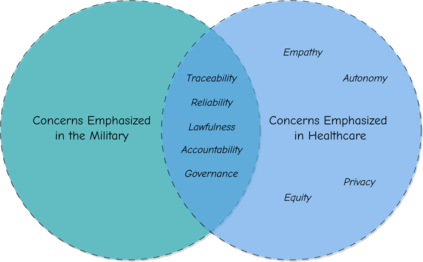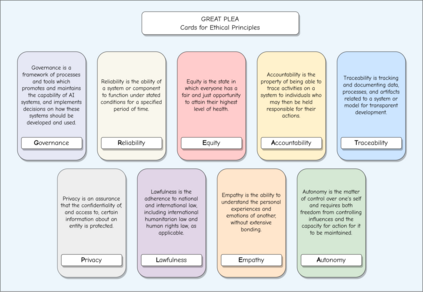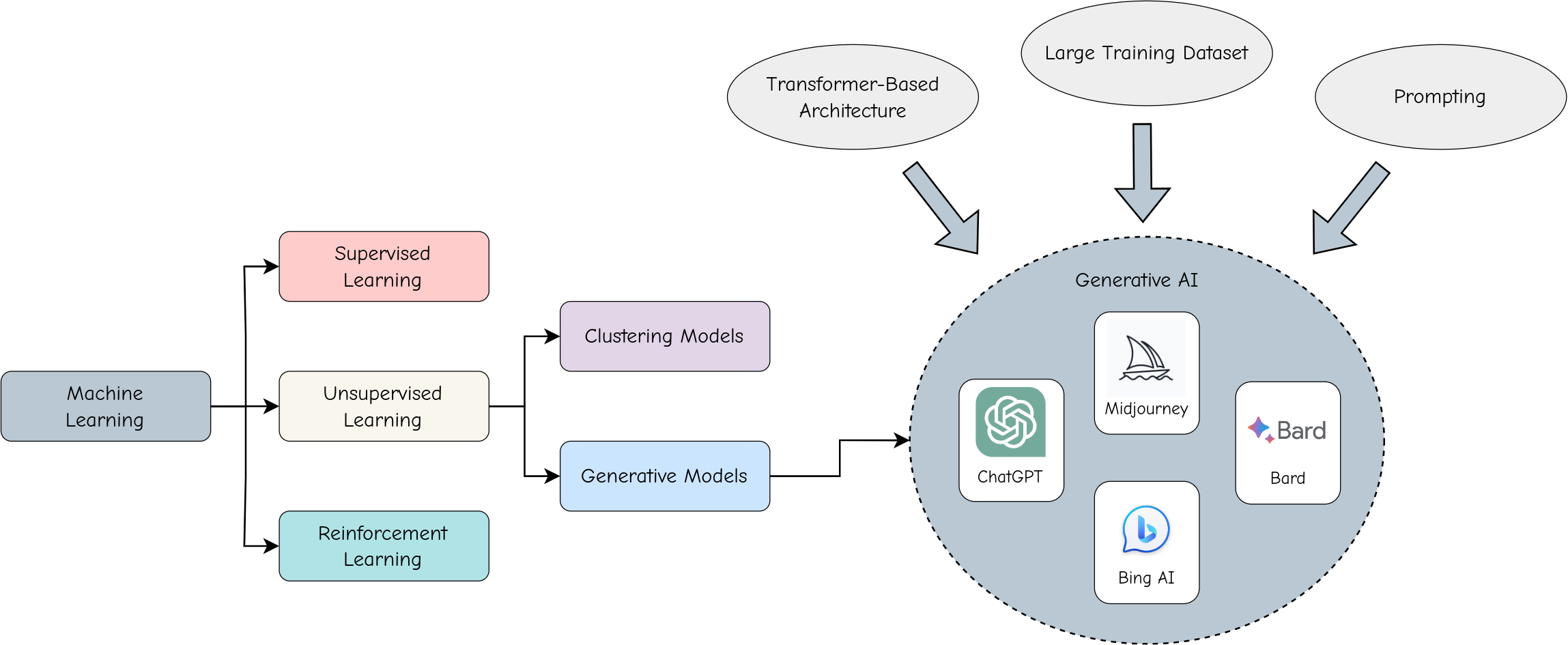In 2020, the U.S. Department of Defense officially disclosed a set of ethical principles to guide the use of Artificial Intelligence (AI) technologies on future battlefields. Despite stark differences, there are core similarities between the military and medical service. Warriors on battlefields often face life-altering circumstances that require quick decision-making. Medical providers experience similar challenges in a rapidly changing healthcare environment, such as in the emergency department or during surgery treating a life-threatening condition. Generative AI, an emerging technology designed to efficiently generate valuable information, holds great promise. As computing power becomes more accessible and the abundance of health data, such as electronic health records, electrocardiograms, and medical images, increases, it is inevitable that healthcare will be revolutionized by this technology. Recently, generative AI has captivated the research community, leading to debates about its application in healthcare, mainly due to concerns about transparency and related issues. Meanwhile, concerns about the potential exacerbation of health disparities due to modeling biases have raised notable ethical concerns regarding the use of this technology in healthcare. However, the ethical principles for generative AI in healthcare have been understudied, and decision-makers often fail to consider the significance of generative AI. In this paper, we propose GREAT PLEA ethical principles, encompassing governance, reliability, equity, accountability, traceability, privacy, lawfulness, empathy, and autonomy, for generative AI in healthcare. We aim to proactively address the ethical dilemmas and challenges posed by the integration of generative AI in healthcare.
翻译:暂无翻译










